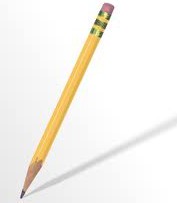Board Recertification: A Waste of Time?
 by Danielle Ofri
by Danielle Ofri
New York Times op-ed
It’s hard to believe that another 10 years have passed, but the proof is the 11-volume stack of medical review books at my bedside. It’s time for the decennial rite of cramming a thousand pages of facts for an eight-hour-long multiple choice test.
Doctors are licensed by their states to practice medicine, but they’re also expected to be “board-certified†in their particular field — surgery, obstetrics, pediatrics, etc. This certification comes from the professional organization of each field. In my case, it’s the American Board of Internal Medicine.
It used to be that you tackled those monstrous board exams just once after residency. Then you went into practice and never looked at a No. 2 pencil again. But in 1990, the boards decided that doctors should recertify every 10 years. This seemed reasonable, given how much medicine changes. Over time, though, the recertification process has become its own industry. The exam has been supplemented with a growing number of maintenance-of-certification, or M.O.C., requirements. Some are knowledge-based exercises, but many are “practice assessments†meant to improve care in your own practice that end up being just onerous paperwork. And the recertification process and associated materials cost doctors thousands of dollars.
This year the internal medicine board announced that doctors who didn’t participate would be publicly tagged as “not meeting M.O.C. requirements.†Many jobs require board-certification, so a number of doctors felt that this tactic amounted to extortion. More than 19,000 signed a petition in protest. They complained that the specialty boards are monopolies that control who can practice medicine and use this power to compel compliance and exorbitant fees. Worse, they argued that the recertification process might not even be effective.
Two recent studies in The Journal of the American Medical Association are the first to seriously evaluate the role of M.O.C. in physician quality and medical costs. They compared doctors certified just before the 1990 change (who were grandfathered in for life and not required to recertify) and their colleagues who certified just after 1990. One study looked at costs and the other at quality (as measured by patients’ glucose levels, blood pressure, colon cancer screening rates and the use of medication for heart disease). The studies differed in methodology but the upshot was that patients’ medical outcomes were no better and overall costs were only marginally lower in the recertifying group (2.5 percent).
All that effort, in other words, didn’t seem to make doctors better. Many doctors are rallying around these findings to call for a wholesale dismantling of the recertification system.
But others are using the data to ask how recertification can be made meaningful. Just because these studies didn’t show an effect doesn’t mean one doesn’t exist. Recertification may benefit certain subsets of patients, such as those with less common illnesses who aren’t numerous enough to influence study results.
Some parts of the recertification process are useful. The practice questions in the review books, for example, exercise muscles we don’t use every day. They re-emphasize important points, remind us about conditions that we see less often and, best of all, are open-book, much like real life. When there is a complex patient in clinical practice, no doctor relies just on memory; we look up the information, check a journal or consult a colleague. To rely solely on memory, especially for rarer illnesses or complicated patients, would be malpractice.
Most doctors agree with having some sort of process that updates and refreshes medical knowledge. But the process has become unmanageable. Let’s strip away the archaic exam and the paperwork-heavy practice assessments. A periodic, modest-size, open-book test that incorporates relevant knowledge and updates would be more reasonable.
There is much more to the science, art and practice of medicine than medical knowledge. But it is the one aspect we can easily assess on a profession-wide scale. Open-book, self-paced tests are the best way to keep knowledge current. The act of searching for answers — whether from journals, textbooks, databases or colleagues — is itself the knowledge. All the rest is busy work and red tape.
